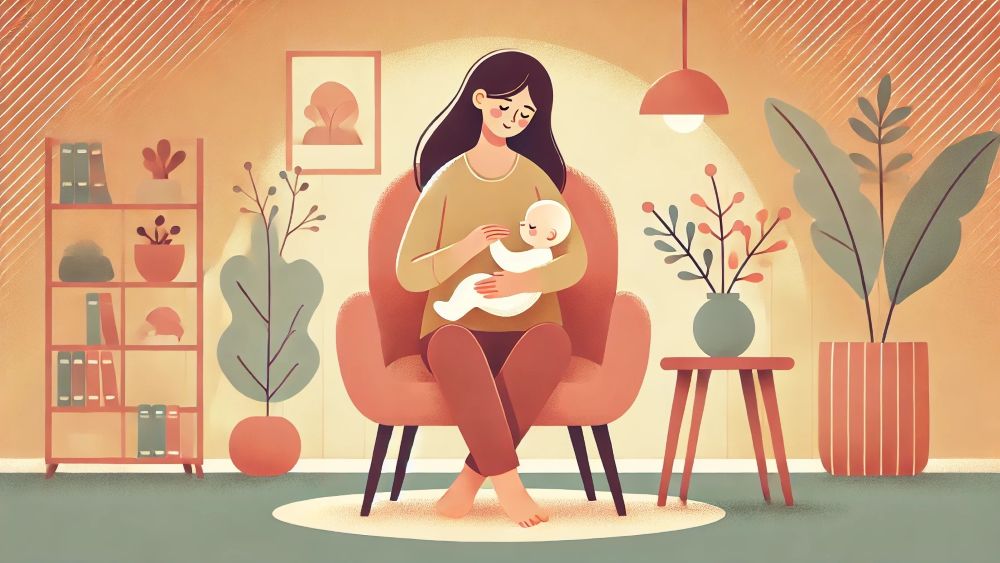Motherhood is truly an amazing journey, a transition from one phase of life to another filled with utmost joy, love, and fulfillment. Yet, it also brings with it a completely unique set of mental-health challenges that mothers face which are kept locked away, more often than not. There is self-doubt, along with social pressure, on top of work, family and the pressure to look after one’s own well-being, making it extremely overwhelming. In this article, we get into a conversation with two mothers from different age groups, as they share some insights about their postpartum experience and how they dealt with those challenges.
The Challenges of Motherhood
Self-doubt is probably one of the most common challenges life throws at mothers. The pressure of wanting to be a ‘perfect mom’ often leaves one wondering: Am I doing justice to my child? In the words of one mother, “I realized that there is no such thing as a perfect parent, and I knew my child more than anybody else. I gradually learned to rely on my judgment.”
Another big challenge is the balancing act that all mothers perform—of being a daughter, partner, professional, and the primary caregiver of the child. Most mothers feel a lot of guilt for not being able to be fully devoted to motherhood. One mother looks back: “Initially, I felt guilty that I wasn’t completely consumed by my role as a mother. But then I realized that motherhood is just a part of me. I am also a daughter, a friend, a boss, and a working professional. I shouldn’t feel guilty for embracing all the aspects of who I am.”
In addition, mothers often face conflicts with family members over parenting decisions. One mother recalled, “I faced challenges in differences of opinion between me, my husband, and my mother-in-law on how to raise my children. But I always found a middle ground and trusted my instincts.”
The Lack of Awareness Around Maternal Mental Health
Despite the awareness about such experiences and the increasing conversations about mental health, maternal mental health is often overlooked. Many people are aware of postpartum depression but fail to recognize the emotional, hormonal, and physiological changes mothers go through beyond a clinical diagnosis. One mother expressed, “Unless a mother is diagnosed with postpartum depression, people don’t acknowledge the mental struggles she might be facing. Even mothers themselves don’t always recognize that they may need mental health support.”
Therapy being available for new mothers when they reach out for help may not be enough; but it should also be available to them in a consultative and supportive capacity. “Mothers-to-be should have access to therapy to help themselves prepare mentally and emotionally for the challenges that may follow. Even if they don’t have an immediate concern, having a professional guide them can be immensely helpful.”
Self-Care and Mental Well-being
Taking time for oneself while devoting time to being a mother, is essential yet quite challenging. Oftentimes, mothers feel that they need to put in every second for their child; however if they do, that may lead to a burnout. One mom shared her thoughts: “I keep a dedicated time for motherhood, so I can also focus on myself. I schedule time for my daughter and ensure I also have time for work and personal activities. On weekends, I reserve one day for my own relaxation and one day to give her quality time.”
She emphasized the importance of maintaining relationships outside of motherhood as well—“Don’t make motherhood the only thing in your life. Look after yourself, don’t give up on your relationship with your partner, spend time with your friends and loved ones. Keeping time for yourself actually helps you be a better mother!”
Advice for New Mothers
For new mothers battling stress, anxiety, or even postpartum depression, the initial message could only be to ask and to not be afraid to ask for help. “Know that whenever you need help, it’s absolutely fine to get it,” was one piece of advice from a mother. “There is no shame in asking for help from your family, friends, or professionals. You don’t have to do it all alone.”
Following closely is the advice to ditch perfectionism. “There is no right or wrong way to be a mother. Motherhood is natural, and nature has its way of working things out. Enjoy the process, and don’t let guilt take over your experience.”
Lastly, mothers must allow their children some freedom to grow and experience the world. “I have seen new mothers become overly protective and not let their children explore their surroundings. It is important to let children be free, to learn from their own experiences, and not be confined.”
Conclusion
With all of its joys, being a mother can be quite challenging. Unfortunately, the mental health battles most mothers face are constant sources of judgment, scrutiny and discouragement; when instead they should have the acknowledgment or support they deserve. Knowledge of maternal mental health and more readily available resources for mothers- whether struggling or just wanting some guidance- need to be further amplified. Most importantly, mothers must always take care of themselves, reach out for support, and learn to enjoy motherhood without guilt or any kind of societal pressure on them.
Ultimately, as one mother wisely put it, “Motherhood is unique to everyone, but it is also something that has existed since the beginning of time! You will figure it out, just like all mothers before you have.”

